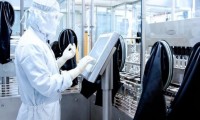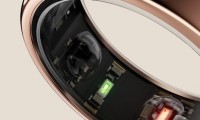-
In shift away from toxic ethylene oxide, Colorado firm offers ‘green’ chlorine dioxide sterilization
- Source: drugdu
- 417
- June 11, 2023
-
Exploring the viability of a new treatment for vascular dementia
- Source: drugdu
- 276
- June 11, 2023
-
Pfizer taps Samsung Biologics in long-term biosimilar production deal worth $411M
- Source: drugdu
- 322
- June 11, 2023
-
After nationwide deal, Teva reaches $193M opioid settlement with holdout Nevada
- Source: drugdu
- 285
- June 11, 2023
-
AstraZeneca to stop post-marketing study of Andexxa following early success
- Source: drugdu
- 259
- June 11, 2023
-
Oura launches new social, sleep features as health tracker market continues to grow
- Source: drugdu
- 250
- June 11, 2023
-
Uncovering cancer-immune system interactions could inform how patients respond to immunotherapy
- Source: drugdu
- 392
- June 11, 2023
-
Study reveals first genetic locus for voice pitch
- Source: drugdu
- 268
- June 11, 2023
-
Sanofi, AstraZeneca’s RSV antibody for infants easily clears FDA adcomm, likely setting up approval
- Source: drugdu
- 502
- June 10, 2023
-
’ Seagen CEO talks about his next stop, Pfizer deal and the ADC landscape
- Source: drugdu
- 540
- June 10, 2023
your submission has already been received.
OK
Subscribe
Please enter a valid Email address!
Submit
The most relevant industry news & insight will be sent to you every two weeks.

















